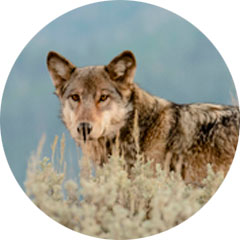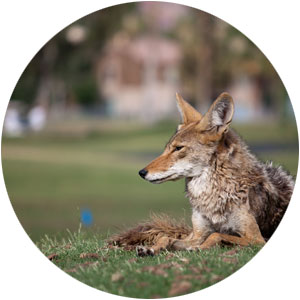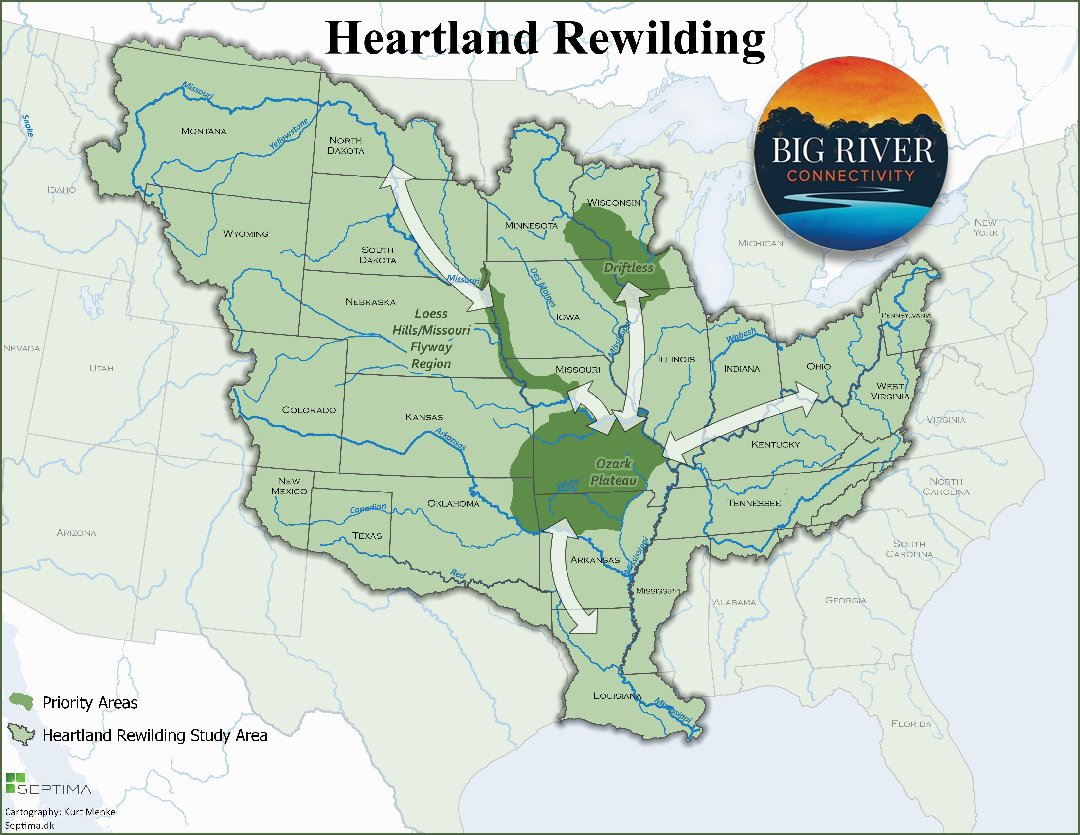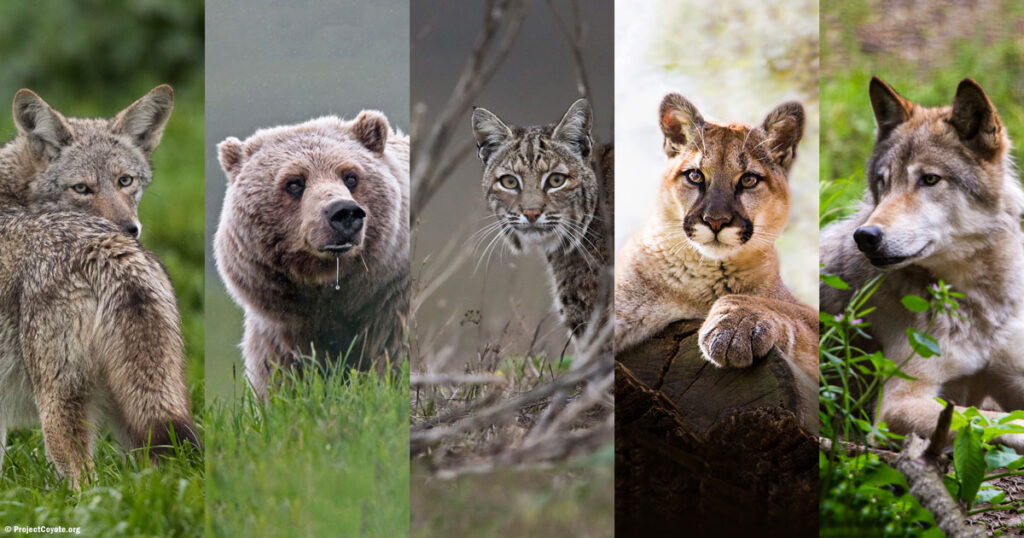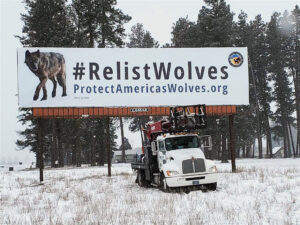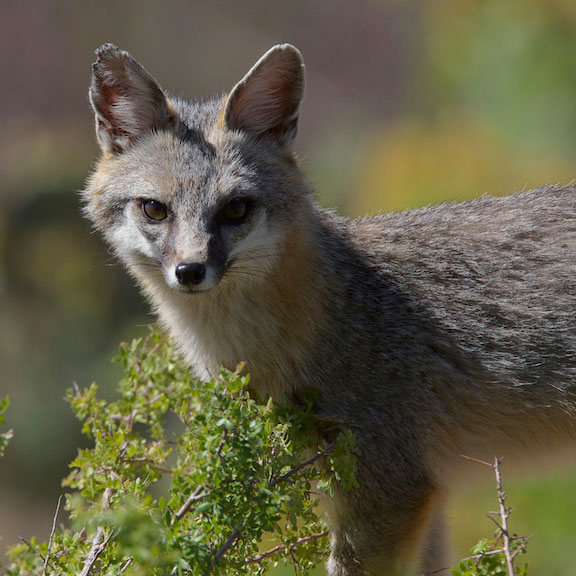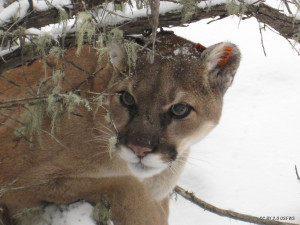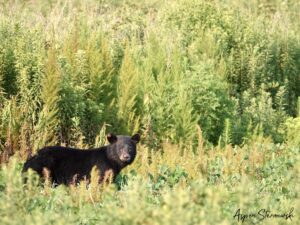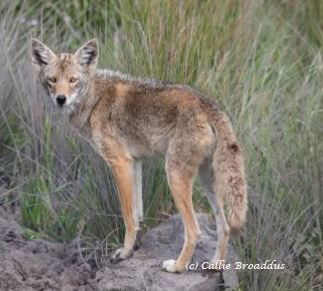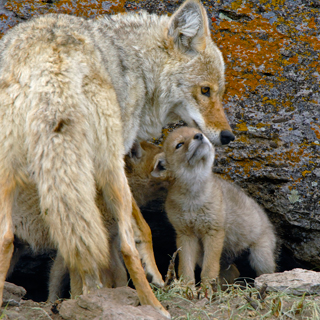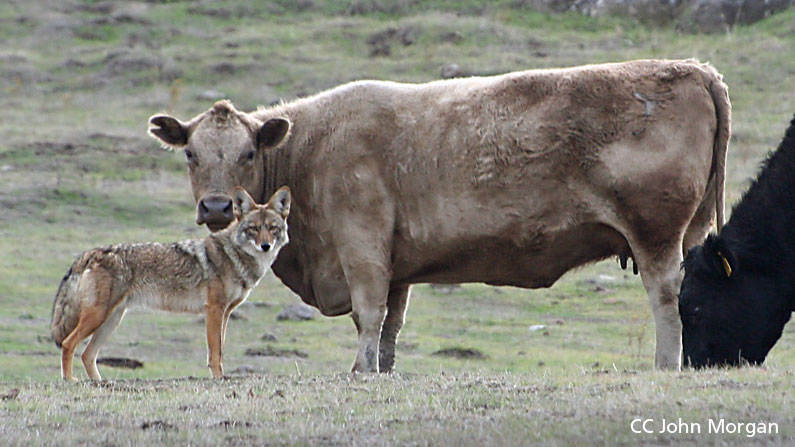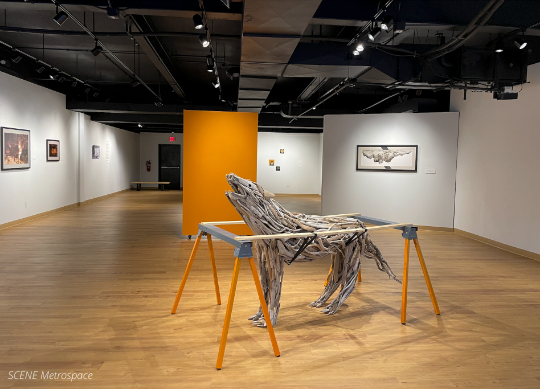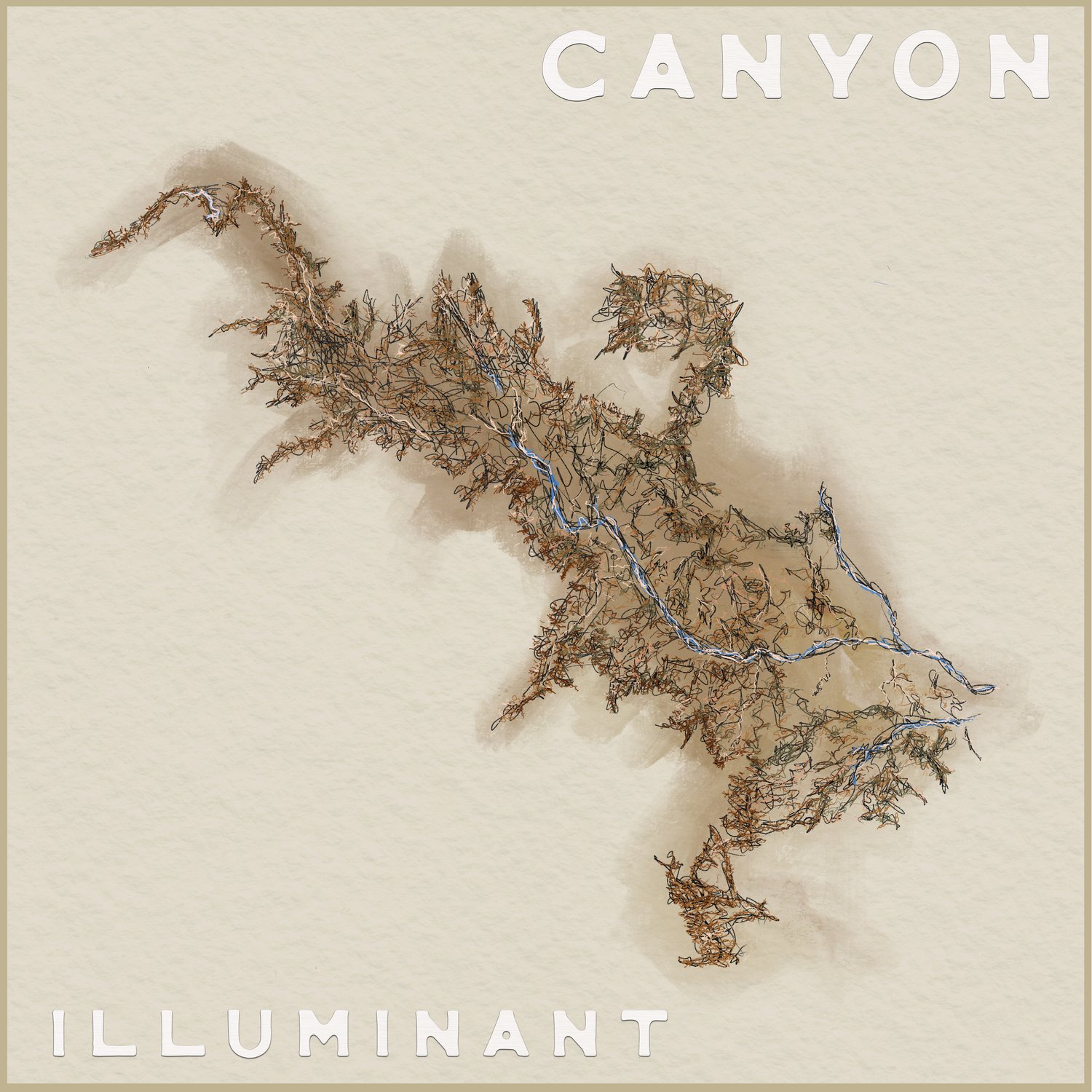FEBRUARY 2022 IN THIS ISSUE:
Never doubt that a small group of thoughtful, committed citizens can change the world; indeed, it’s the only thing that ever has.
~Margaret Mead
Last week, wildlife advocates across the U.S. celebrated a federal district court ruling to relist wolves after the Trump administration removed federal protections for wolves in January 2021. The Biden administration failed to reinstate emergency federal protection, thereby opening up expanded slaughter across their range. Last week’s ruling reinstates federal protections for gray wolves under the Endangered Species Act across the lower 48 except for three separate groups of wolves. The first two groups, Mexican gray wolves and red wolves, are already federally protected. Tragically, the third group of wolves in the Northern Rockies states of Idaho, Montana and Wyoming, are not included in that ruling and still face intense persecution under state management with new laws allowing liberalized killing through trophy hunting, trapping, snaring, baiting, aerial gunning and night hunting. We’ve been advocating for wolf protections for a long time and now is no time to let up.
Project Coyote‘s new billboard campaign in Idaho and Montana challenges this egregious mismanagement, calling for the relisting of wolves in the Northern Rockies where populations continue to attract millions of visitors to famed Yellowstone National Park from all over the globe to glimpse a wolf in the wild.
At the base of this mismanagement of wolves and other apex predators is a governance system that is out of sync with current science and public sentiment. Such a broken system is reflected in myriad other states where wildlife commission‘s continue to allow and even expand the wanton killing of wild carnivores. Some recent examples of where we’ve been countering the actions of commissions that simply shills for a small contingent of hunting and agricultural interests include: expanded opportunities to trophy hunt black bears in California and North Carolina, hound hunting of coyotes in Vermont, wildlife killing contests in Virginia and trophy hunting of wild cats in Colorado. We’re also part of a newly formed coalition called Wildlife For All that aims to reform state and federal wildlife agency governance structures and institutions pushing for change that reflects diverse values for wildlife, more democratic decision-making and recognition of wildlife as a common good to be conserved for the benefit of all. Across all these issues and more, Project Coyote is on the front lines, advocating on behalf of North America‘s wild carnivores who have no voice and are often still seen as vermin needing to be expunged from the landscape.
On another front, we’re excited to expand our reach into the Midwest through the Big River Connectivity project in collaboration with The Rewilding Institute, the Half-Earth Project and BeWildReWild. Through this partnership we aim to restore at least 9 million acres in the Midwest to create a wilder, more beautiful, more biologically diverse and more enduring Mississippi River watershed. We will do so by shifting the paradigm from traditional agricultural practices to a more holistic, sustainable and humane approach of interacting with land and wildlife.
Our work is defensive and offensive — working to stop wanton wildlife killing while concurrently seeking to educate, empower and inspire action for wildlife and wildlands. Read more about these efforts below and our expanded team who will help bring these bold goals to fruition.
We could not do this work without you — our supporters and the many foundations who believe in our vision for a wilder world. Thank you for helping foster compassion for the other beings with whom we share this planet.
Carnivore Conservation & Coexistence ~ Big River Connectivity
Big River Connectivity (BRC) is a new collaborative initiative in the Midwest. Much attention is paid to carnivore conservation in the American West, yet expanding and recovering populations of coyotes, mountain lions, black bears and other native wildlife demand a shift in human perceptions and behaviors to promote coexistence in Middle America. Project Coyote is strategically growing capacity in the region, raising public awareness and filling critical knowledge gaps in best practices for communicating and promoting coexistence through public education, proactive conflict prevention, and close collaboration with The Rewilding Institute (TRI). Check out the most recent work in this region:
-
- Dr. Francisco Santiago-Ávila joined us in January as our Big River Connectivity Science and Conservation Manager. Read more below!
- We’re supporting House File 2118, which was introduced in the Iowa House of Representatives. The bill would make it illegal to hunt, trap, or otherwise harm wolves, black bears, and mountain lions in the state.
- Kelly Borgmann sat down to talk with Jack Humphreys for the Rewilding Earth Podcast. In her interview, she describes her BRC work and her vision for the future of the Midwest.
- Dr. Michelle Lute was interviewed by David Condos of Kansas News Service about the resiliency of coyotes and why coexistence is better than killing.
- We are ramping up our social media campaign around #BRC, beginning with promoting the vision and motivation behind our initiative for Rewilding the Heartland and 4Cs. In this short film, BeWildReWild’s Roger Ross Gipple introduces us to the philosophy and values integral to rewilding and the protection of more-than-human life, including respect for otherness, wildness, self-regulation and deep ecology. We will be promoting each of these films throughout social media in the coming weeks.
- Be sure to follow us on Facebook, Instagram, and Twitter for all the most up-to-date BRC news!
Carnivore Conservation & Coexistence ~ Federal/National
Project Coyote Science Advisor Dave Parsons wrote an editorial explaining his “Concern Over President’s Choice to Head Federal Wildlife Agency” and why President Biden’s nominee for the Director of the U.S. Fish and Wildlife Service (USFWS) position, Martha Williams, is unqualified. Despite our proposed candidate Michael Phillips — whose former roles as Montana legislator and employee of both the USFWS and the National Park Service made him an exemplary candidate for USFWS Director — Williams’ nomination has advanced to the full Senate for a final confirmation vote. We asked supporters to urge senators to oppose Williams’ nomination and instead support a viable and qualified candidate like Michael Phillips. But on February 17, the Senate confirmed Williams as the USFWS Director. Our work is cut out for us, but we’ll remain vigilant in pushing federal policies and practices to be informed by the best available science and conserve wildlife for their own sake.
Carnivore Conservation & Coexistence ~ Protect America’s Wolves
- On February 10, a federal district judge in California restored Endangered Species Act protections for wolves outside the Northern Rockies (Idaho, Montana and Wyoming) at the request of multiple wildlife conservation organizations. To raise awareness of the continued plight of Northern Rockies wolves, we recently expanded our Protecting America’s Wolves campaign with two billboards in major highway corridors in Montana and Idaho urging people to demand the federal government emergency #RelistWolves — to protect those under the most threat in the Northern Rockies.
- We alerted and encouraged our members to support Mexican gray wolf recovery and the use of best available science by providing oral and written comments to the USFWS in response to their proposed revised 10(j) management rule. Led by Dave Parsons, of Project Coyote and The Rewilding Institute, we submitted 30+ pages of written comments detailing how the proposed rule fails Mexican wolves and their recovery. In collaboration with Lobos of the Southwest coalition efforts, we helped drive more than 81,000 comments supporting science-based lobo recovery.
- The Michigan Department of Natural Resources (DNR) is working to update their wolf management plan. The latest ruling to restore protections to wolves outside the Northern Rockies will protect wolves in Michigan. However, we still need to ensure the DNR builds a plan that is based on science and not the wants of special interest groups. In January, we sent out an Action Alert on the wolf management plan and survey, and will continue to update on the DNR’s progress.
Carnivore Conservation & Coexistence ~ Virginia
Last year we supported a push for a regulatory ban on wildlife killing contests in Virginia but the commission decided to shirk their responsibility to make sound wildlife decisions and instead punted the issue to the legislature. This year, legislation was introduced and we alerted our membership and offered oral testimony in support of this and several other bills:
- HB1247 prohibiting wildlife killing contests was introduced by Del. Mark. L Keam to the Natural Resources Subcommittee of the Virginia House Agriculture Chesapeake and Natural Resources Committee but failed to pass.
- HB725, 1175, 1176 prohibiting the use of steel-jawed (725) and snare (1175/1176) traps were introduced to the same subcommittee but also failed to pass.
We’re regrouping with our National Coalition to End Wildlife Killing Contests to identify what’s next in Virginia. We’re not giving up; stay tuned!
Carnivore Conservation & Coexistence ~ California
We continue to fight for an end to black bear hunting in the state. We mobilized our California supporters, offered written comments and oral testimony to the California Fish and Game Commission in opposition to a recent petition to increase available bear tags per hunter, and in support of a recent petition put forth by HSUS to place a moratorium on bear hunting. Both petitions are still under consideration by the CFGC.
Carnivore Conservation & Coexistence ~ Colorado
Colorado Senator Sonya Jaquez Lewis introduced a bill (Colorado SB22-031) to stop the trophy hunting and trapping of Colorado’s three wild cats: mountain lions, bobcats and Canada lynx. Project Coyote supported this landmark legislation in coalition with many partner organizations. Unfortunately, outside trophy hunting lobbyists spread misinformation and defeated the bill’s chances of advancement. We’ll be continuing our work in Colorado to counter the false narratives in defense of science-based policy for wild cats, wolves and all wildlife in the Centennial State.
Carnivore Conservation & Coexistence ~ North Carolina
The North Carolina Wildlife Resources Commission is proposing to open three of the state’s bear sanctuaries to permitted bear hunts, at the request of the U.S. Forest Service, citing “increased human-bear interactions” without evidence. We alerted our supporter base in the state to speak up for the beloved bears in Panthertown and other sanctuaries. Most comments were in opposition to trophy hunting bears. We await news from the commission on further meetings to discuss the issue.
Carnivore Conservation & Coexistence ~ Vermont
Earlier this year the Vermont Senate Committee on Natural Resources and Energy introduced and discussed three new bills, S.129, S.201, and S.281 to protect wildlife. All three bills will move Vermont forward and help protect wildlife: S.281 would ban the barbaric practice of abusing hounds to chase and kill coyotes (“hounding”), S.201 would ban leghold traps, and S.129 would make the Vermont Fish and Wildlife Board advisory only. Similar to trapping, hounding is cruel to dogs, coyotes, and non-target wildlife. Hounds can become injured and stressed. Hunters often have no control over their hounds, who are miles away and can be hit by cars or trespass on private property while in pursuit of wildlife. Because hounds track prey for long distances, they invariably pursue and stress non-target animals including deer, moose, small mammals, and ground-nesting birds. We will continue to promote and fight for these bills and all of Vermont’s wildlife.
COYOTE FRIENDLY COMMUNITIES
As the winter unfolds, single coyotes look for mates and those already paired are preparing to renew their vows, so to speak. Mating season usually occurs during the first two weeks of February in most areas across the U.S. Unlike domestic dogs, coyotes are monestrous – meaning that they breed only once a year. As the cold season starts to turn into spring coyotes become more active, building dens and taking care of new pups. This often results in increased calls and inquiries related to coyotes. Communities seeking assistance in promoting peaceful coexistence between people, companion animals and coyotes are directed to our Coyote Friendly Communities program. The program offers science-based resources to help communities safely coexist with America’s native song dog. Check out recent staff and science advisors’ activities on this front:
As part of our Coyote Friendly Communities program, Project Coyote continues to provide presentations across the country on coexisting with coyotes. If you missed the recent presentation from Keli Hendricks, sponsored by the San Francisco Animal Care and Control and San Francisco Parks and Recreation Department, you still watch it here.
Ranching with Wildlife
PhD Candidate Naomi Louchouarn and SAB member Dr. Adrian Treves, of the Carnivore Coexistence Lab, recently published results from a gold-standard experiment conducted in collaboration with rancher Joe Engelhart and Spruce co-op cattle owners in Alberta, Canada. Their experiment evaluated the effectiveness of low-stress range riding on protection of cattle from carnivores. They concluded that a well-trained range rider is effective at protecting cattle from carnivore predation, adding to a growing literature on effective non-lethal methods for coexistence.
Artists for Wild Nature
Launched last August, a traveling exhibition curated by University of Michigan graduate student Catherine Plank, The Spirit of the Hunt, was designed to raise public awareness about the plight of Michigan’s wolves and just closed Feb. 8. All the artwork in the show was donated by artists with the goal of inspiring coexistence between humans and the wolves and coyotes. Artwork is available for purchase online (details to come). Proceeds from the sale of the exhibition’s pieces will be donated to Project Coyote to support coexistence with native carnivores in the Great Lakes region and the organization’s Protect America’s Wolves campaign.
Our newest Artist for Wild Nature, Michael Walker, recently produced a musical journey called Canyon, Illuminant, which effortlessly draws us into deep time with hypnotic imagery of “a day in a life” of this canyon, set 15,000 years ago. His music is masterful storytelling that is able to deliver us into a dreamlike realm of creative connection with animals and our earth. Paired with his sophisticated and factual writing — that still manages to evoke an aspirational love of nature — this intersection of musical storytelling and conservation is immensely powerful.
Please Welcome the Newest Members of the Project Coyote Team!
As part of our new partnership and initiative with The Rewilding Institute to expand programs and campaigns across the Mississippi Watershed, Dr. Francisco Santiago-Ávila transitioned from our Science Advisory Board in January to join us full-time as our Big River Connectivity (BRC) Science and Conservation Manager to work closely with Kelly Borgmann, our BRC Coexistence Coordinator. Fran’s scientific and ethical expertise complements Kelly’s policy and communications skillsets. We’re so excited to see where this dynamic duo will take the BRC work!
A third position, also jointly managed with our friends at the Rewilding Institute, is the new Carnivore Conservation Advocate. Renee Seacor comes to this position with an impressive combination of legal acumen and scientific knowledge. She will be working closely with Science Advisor Dave Parsons and National Carnivore Conservation Manager Michelle Lute on all things coexistence and carnivores.
Jane McBride joined as our new Illinois Representative, bringing decades of legal experience and animal advocacy to benefit our work in the state. She is an attorney, recently retired after 24 years with the Environmental Bureau of the Illinois Attorney General’s Office.
Project Coyote Webinars
Project Coyote (in collaboration with The Rewilding Institute) is continuing with our informative and engaging series of webinars. If you missed any of the presentations, you can find replays here on our website for easy viewing and sharing.
Project Coyote Team Recent Publications, Press and Presentations
Podcasts, Webinars, Conferences, TV and Radio Shows
- Resistance Radio with Derrick Jensen: Guest Michelle Lute (Jan. 23, 2022)
- NPR – WBUR Here and Now Coyotes Thrive despite efforts to get rid of them (Feb. 7, 2022)
- NPR – KCUR Up To Date Kansas hunters are trying to thin coyote populations, but it’s backfiring (Feb. 10, 2022)
- Rewilding Earth Podcast Rewilding the Mississippi Watershed (Feb. 4, 2022)
Dr. Francisco J. Santiago-Ávila
- Freedom of Species podcast with host Dr. Adam Cardilini and co-guest Dr. William S. Lynn A Multispecies Justice Approach: Creating a Just World for Animals and People (Feb. 6, 2022)
- UNTAMED with Brenna Galdenzi Is Fish & Wildlife using science to inform wildlife policy decisions? (Jan. 19, 2022)
- Caring for Creation: Wolves, People, Domestic Animals, and Deer with Dr Adrian Treves (Feb. 10, 2022)
Project Coyote and Compassionate Conservation and Coexistence (Mary Holmes, Animal Culture Magazine, Jan. 2022)
Camilla Fox and Dr. Michelle Lute:
Featured in A glorious week for wolves, a ghastly one for eagles (Tracy Keeling, The Canary, Feb. 13, 2022)
Dr. Michelle Lute:
Featured in What makes coyotes so prevalent (Robert Miller, CT INSIDER, Jan. 22, 2022)
Featured in Conservation group voices concern as plan to trap and kill ‘nuisance’ coyotes in Wauwatosa moves ahead (Amanda Becker, WDJT Milwaukee, Jan. 10, 2022)
Quoted in Smith: New wolf protections aren’t surprising in the wake of management decisions that ignore science and culture (behind a paywall; Paul A. Smith, Milwaukee Journal Sentinel, Feb. 13, 2022)
Featured in The Piedmont’s top dog: Local researcher educates public on coyotes, their role (Dylan Phillips, Mebane Enterprise, Feb. 2, 2022)
Drs. Francisco J. Santiago-Ávila & Adrian Treves:
New peer-reviewed research in Scientific Reports on wolf poaching in Wisconsin, USA: Santiago-Ávila, F.J. and A. Treves, Poaching of protected wolves fluctuated seasonally and with non-wolf hunting. Scientific Reports, 2022.
Featured in Snowy weather could determine life or death for Wisconsin’s poached gray wolves (Kate Baggaley, Popular Science, Feb 2, 2022)
Dr. Adrian Treves with Naomi Louchouarn:
Adrian Treves, Naomi X. Louchouarn. Uncertainty and precaution in hunting wolves twice in a year. bioRxiv 2021.10.25.465697; doi: 2021.10.25.465697
Follow the Money (The Wildlife News, Feb. 10, 2022)
Concern Over Biden’s Choice to Head Federal Wildlife Agency (Counterpunch, Dec. 17, 2021)
What is a Wilderness Without Its Wolves? (Counterpunch, Dec. 24, 2021)
Notes From the Field Blog
- Kelly Borgmann – Journey into the field of conservation
- Dave Parsons –Why Science Must Inform the Recovery of the Mexican Gray Wolf
Join our E-TEAM
Get periodic e-news, action alerts, and join our growing network of educators, scientists, predator friendly ranchers and citizen leaders who are helping people and wildlife coexist in our communities.
Join a growing community of educated and empowered citizens by expressing your commitment to compassionate conservation with a financial investment.
You can DONATE, become a SPONSOR or leave a LEGACY GIFT.

